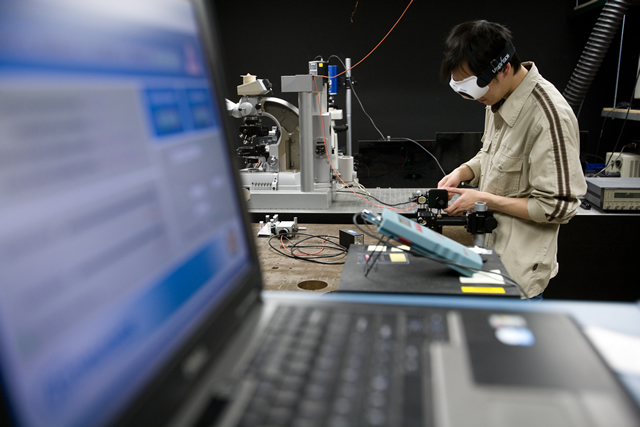
Computer Science ETDs
Publication Date
7-1-2011
Abstract
Peer review, our current system for determining which papers to accept and which to reject by journals and conferences, has limitations that impair the quality of scientific communication. Under the current system, reviewers have only a limited amount of time to devote to evaluating papers and each paper receives an equal amount of attention regardless of how good the paper is. We propose to implement a new system for conference peer review based on ant colony optimization (ACO) algorithms. In our model, each reviewer has a set of ants that goes out and finds articles. The reviewer assesses the paper that the ant brings according to the criteria specified by the conference organizers and the ant deposits pheromone that is proportional to the quality of the review. Each subsequent ant then samples the pheromones and probabilistically selects the next article based on the strength of the pheromones. We used an agent-based model to determine if an ACO-based paper selection system will direct reviewers attention to the best articles and if the average quality of papers increases with each round of reviews. We also conducted an experiment in conjunction with the 2011 UNM Computer Science Graduate Student Association conference and compared the results with our simulation. To assess the usefulness of our approach, we compared our algorithm to a greedy algorithm that always takes the best un-reviewed paper and a latent factor analysis recommender-based system. We found that the ACO-based algorithm was better than either of the greedy or recommender algorithms at directing users' attention to the better papers.
Language
English
Keywords
Ant Colony Optimization, Peer review
Document Type
Thesis
Degree Name
Computer Science
Level of Degree
Masters
Department Name
Department of Computer Science
First Committee Member (Chair)
Luger, George
Second Committee Member
Greene, Kshanti
Recommended Citation
Flynn, Mark. "Improving peer review with ACORN : Ant Colony Optimization algorithm for Reviewer's Network." (2011). https://digitalrepository.unm.edu/cs_etds/58
